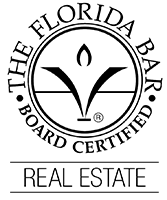When Someone Dies In Florida, Who Decides On Disposition Of The Body?
Of course, one of the first steps when someone dies in Pinellas County Florida is disposition of the body. This is handled by a licensed funeral home or the Pinellas County Medical Examiner. There is usually no dispute concerning disposition of the body. Usually the decedent’s surviving spouse and children agree upon the arrangements. In other cases, decedents leave preneed instructions with a funeral home.
But sometimes a dispute erupts over who has the right to decide how to dispose of the body of someone who dies. Pinellas County probate attorney Jim Martin wrote an article on this subject in 2004. When the dispute over disposition of the body of the celebrity Anna Nicole Smith hit the news, Court TV interviewed probate attorney Jim Martin about his article and how Florida law might apply to the Anna Nicole Smith case.
Here is the text of Jim Martin’s article as published in The Florida Bar News on June 1, 2004:
I remember studying Florida Jur for answers to mundane questions that budding probate lawyers ask. Questions such as, “Who owns a deceased person’s body?” I recall Florida Jur saying nobody owns a dead body, but the next of kin have a right to decide how to dispose of it. It cited a case or two, but no statute. There was not much of a body of law for the law of the body back then.
Today, as aging Baby Boomers watch the Schiavo case on national news and ponder their own end-of-life decisions, the question of who owns a deceased person’s body begs for the black-letter law of statute. The 2004 Florida Legislature has answered their pleas by enacting Senate Bill 528 effective October 1, 2005, to amend Florida Statutes Chapters 470 and 497 governing the funeral and cemetery industries. Under the new law, a “legally authorized person” will be empowered to instruct funeral directors on disposition of dead bodies.
SB 528 adds a definition of “legally authorized person” to Florida Statutes Section 497.005 by listing a series of persons of various priorities. The first person in the list of priorities is the deceased person himself or herself. Probate lawyers call this person the decedent. Since no longer living, the new law empowers the decedent by recognizing “written inter vivos authorizations and directions provided by the decedent.” This makes sense: if someone goes to the trouble of visiting a funeral home and writing out instructions for disposition of his or her body after death, their instructions ought to be followed.
Unfortunately, the new law does not say whether a direction in a will is allowed for this purpose. Many people, lawyers and judges included, would expect the will to be a logical place for someone to state their post-death body disposition wishes. However, a will is testamentary in nature and is not effective until death, so it is arguable that it is not inter vivos.
Since the new law requires an inter vivos direction, a direction in the decedent’s will concerning disposition of his or her body after death might not be valid under this new law. This would, perhaps, be contrary to legislative intent. It would certainly be contrary to existing case law which at least implies that a decedent has a testamentary right to decide on disposition of the body. (See below.)
The second “legally authorized person” in priority is the surviving spouse, and the third in priority is a son or daughter who is at least 18 years old. This is interesting because the Florida Probate Code provides that the heirs of a deceased person who dies intestate (without a valid will) are generally the surviving spouse as to half the estate and the lineal descendants (children, grandchildren, etc.) as to the other half. Thus, the surviving spouse shares the decedent’s property equally with the children under the Florida Probate Code. The new law treats disposition of the decedent’s body differently by clearly stating that the surviving spouse alone is the “legally authorized person” to decide on disposition of the body if the decedent left no written inter vivos authorization or direction.
However, there is a twist that favors the children and will surely give their lawyers room for argument. The new law adds a subsection to Florida Statutes Section 406.50 (unclaimed bodies) that says, “In the event more than one legally authorized person claims a body for interment, the requests shall be prioritized in accordance with [Florida Statutes] s. 732.103.” You might think this is the statute that says the spouse gets half and the children get the other half. That is probably what the Legislature thought. But it’s not. Florida Statutes Section 732.103 says: “The part of the intestate estate not passing to the surviving spouse under s. 732.102… descends…[t]o the lineal descendants of the decedent.” Thus, the new law has the effect of saying that if more than one legally authorized person claims a body, the spouse is not counted in determining priority, and the children are the ones who get to decide, which is directly in conflict with the new law’s definition of “legally authorized person.”
Was all of this really necessary? Was it important for the Florida Legislature to try to codify the law of the dead body? Was it attempting to change case law?
Well, I went back to the old cases and here is what I found. It was way back in 1950 that the Florida Supreme Court cited Am.Jur., Dead Bodies, and said: “It is well settled that, in the absence of testamentary disposition to the contrary, a surviving spouse or next of kin has the right to the possession of the body of a deceased person for the purpose of burial, sepulcher or other lawful disposition which they may see fit. …And the invasion of such right by unlawfully withholding the body from the relative entitled thereto is an actionable wrong, for which substantial damages may be recovered.” Kirksey v. Jernigan, 45 So.2d 188 (Fla. 1950).
As everyone knows, possession is nine-tenths of the law, so recognition of a right to possession might be a form of property right. It is at least such a strong right that the Florida Supreme Court held its invasion to entitle the relatives to substantial damages. But is it a property right in the same way that owning a car or a house is a property right?
The Florida Supreme Court examined this question at length in 2001 and concluded that it was kind of like a property right.
The court said, “Based upon these statutory rights of the next of kin in their dead relatives’ bodies, along with the case law on this issue, we conclude that in Florida there is a legitimate claim of entitlement by the next of kin to possession of the remains of a decedent for burial or other lawful disposition. We also find that referring to the interest as a ‘legitimate claim of entitlement’ most accurately describes the nature of the interest.” Crocker v. Pleasant, 778 So.2d 978 (Fla. 2001). The Court earlier in the opinion noted that, “This conclusion is consistent with the approach of other courts that have found that this right constitutes a legitimate claim of entitlement or a quasi-property interest.”
The Crocker court explained a quasi-property interest by quoting Lawyer v. Kernodle, 721 F.2d 632 (8th Cir. 1983): “In the sense in which the word “property” ordinarily is used, one whose duty it becomes to bury a deceased person has no right of ownership over the corpse; but, in the broader meaning of the term, he has what has been called a “quasi property right” which entitles him to the possession and control of the body for the single purpose of decent burial. If the deceased person leave [sic] a widow, such right belongs to her…”
Of course, the Crocker court noted in footnote 10: “Unlike other traditional property interests, however, there is no recognized right to possess the remains of a deceased relative for commercial purposes.”
Well, perhaps the cases are a bit confusing and do take some time to read. They do not set out in black and white in one place a list of persons who have the actual quasi-property right to decide the disposition of a deceased person’s body. It would probably be helpful to funeral directors if the cases or statutes had such a list that was clear and not ambiguous. While the new law is a step in that direction, it appears to have some glitches that a future Legislature will need to address.
As for whether dead bodies are someone’s property, it’s a good thing they’re not. If they were, the Legislature would tax them.
Of course, one of the first steps when someone dies in Pinellas County Florida is disposition of the body. This is handled by a licensed funeral home or the Pinellas County Medical Examiner. There is usually no dispute concerning disposition of the body. Usually the decedent’s surviving spouse and children agree upon the arrangements. In other cases, decedents leave preneed instructions with a funeral home.






